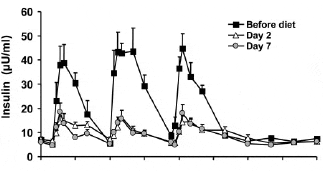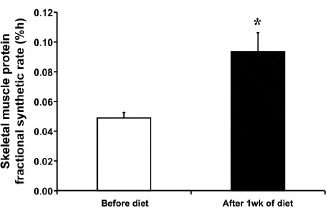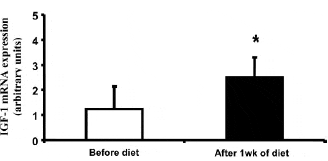- Joined
- Aug 24, 2017
- Messages
- 5,857
Efficacy of ketogenic diet on body composition during resistance training in trained men: a randomized controlled trial
In this study they compared a keto group vs a non keto group. Macros were: 20% protein, 55% carbs, 25% fats for the non keto group and 20% protein, <10% carbs (42g) and 70% fats for the keto group.
Their conclusion:
In this study they compared a keto group vs a non keto group. Macros were: 20% protein, 55% carbs, 25% fats for the non keto group and 20% protein, <10% carbs (42g) and 70% fats for the keto group.
Their conclusion:
"this research showed no significant changes nor effect size on LBM, despite hyperenergetic condition and high protein intake (2.0 g∙kg− 1⋅d− 1) in resistance-trained men of the KD group. Thus, we conclude that low-carbohydrate dietary approaches, such as KD, would not be an optimum strategy for building muscle mass in trained men under the training conditions of this study (mechanical tension-focused RT protocol during 8 weeks)."
Although they lost more overall fat as well as visceral fat, they actually lost a little muscle as well, even when in a caloric surplus and eating high protein. "To guarantee a hyperenergetic condition, a daily energy intake of ≈39 kcal·kg− 1·d− 1 was used in all subjects."




